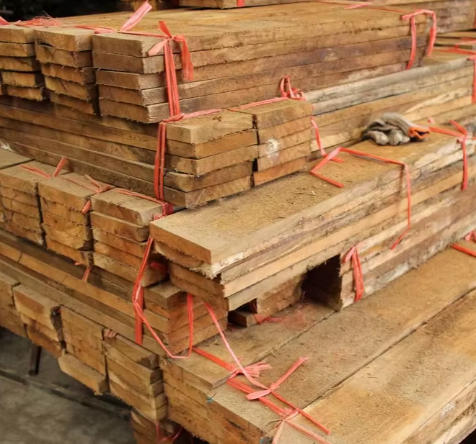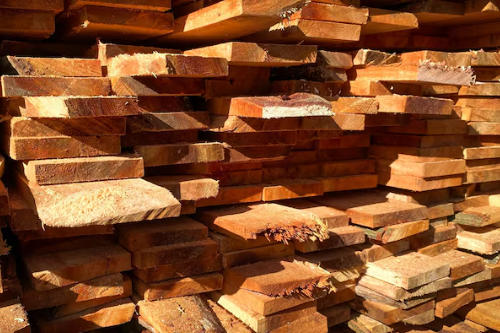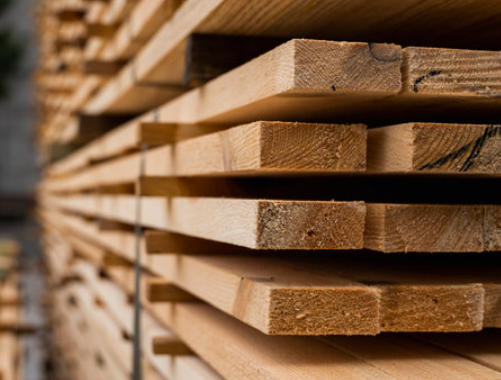Views: 222 Author: Rebecca Publish Time: 2025-11-04 Origin: Site











Content Menu
● Mozambique's Hardwood Industry Scope
>> Forest Coverage and Key Species
>> Sustainable Management Trends
>> Regulatory and Certification Frameworks
● Leading Hardwood Log Manufacturers and Exporters in Mozambique
>> Timber Export Africa Mozambique (TEAM)
>> Levasflor
>> Mozambique Wood – Durango Trade Limited
>> Hong Kong Senheda Trade Limited
>> Clint Wood General Trade, FDG, and Winyear
● Export Markets and Trending Data
>> Major Importers and Export Volumes
>> Market Growth Rate and Outlook
● Advantages of Sourcing Hardwood Logs from Mozambique
● Innovation and Modernization in the Hardwood Sector
>> Digital Tracking and Transparency
>> Integration with Furniture and Component Industries
● Challenges Facing Hardwood Manufacturers and Suppliers
>> Environmental and Regulatory Pressures
● Strategic Guidance for International Buyers
>> How to Choose the Right Supplier
● Featured Hardwood Species Details
>> Doussie (Afzelia quanzensis)
>> Kiaat (African Teak, Pterocarpus angolensis)
>> African Blackwood (Dalbergia melanoxylon)
● Market Opportunities and Long-Term Outlook
● FAQs
>> 1. What types of hardwood are commonly exported from Mozambique?
>> 2. Are sustainable forestry practices common among Mozambique's hardwood suppliers?
>> 3. Can Mozambique hardwood manufacturers provide OEM services?
>> 4. What are the logistical advantages of sourcing hardwood from Mozambique?
>> 5. Are Mozambican hardwood products compliant with major global trade regulations?
Mozambique's hardwood forests are gaining global recognition for their biodiversity and economic potential. Positioned as a major supplier of premium hardwood logs, Mozambique's reputation continues to grow due to its robust network of manufacturers and exporters dedicated to sustainability and quality. This article offers an exhaustive overview of leading hardwood log producers, explores industry fundamentals, market trends, and addresses buyer needs with actionable guidance and FAQs.[8][11][12]

Mozambique features approximately 40 million hectares of forests, translating to nearly 50% of its land mass. These forests sustain a rich array of commercial hardwoods, including Doussie (Afzelia quanzensis), Kiaat (African Teak, Pterocarpus angolensis), Wenge (Milletia laurentii), African Blackwood (Dalbergia melanoxylon), and several other regionally valuable species. These woods are highly prized for their resilience, unique grains, and suitability for luxury furniture, decking, flooring, and carved products.[11]
The Mozambican government has amplified its commitment to sustainable forestry. In 2025, the timber exploitation quota was set at 485,936 cubic metres—a slight increase versus 2024, reflecting policy efforts to balance economic growth with ecosystem protection. This quota system, alongside controls on harvesting and export, supports the long-term viability of Mozambique's forests.[5]
Increasingly, major exporters adopt Forest Stewardship Council (FSC) certification for both forest management and chain of custody, ensuring that logs are harvested legally, ethically, and without harm to local communities or endemic wildlife. Exporters frequently comply with CITES (the Convention on International Trade in Endangered Species) and EU Deforestation Regulation standards, which are central for global competitiveness.[10][12]
TEAM manages integrated forest concessions and advanced processing facilities, guaranteeing a traceable supply chain from sustainable harvest to export. Their operation supports large international OEM orders with precise quality controls. TOP export species are Doussie, Kiaat, and African Blackwood.[11]
Levasflor, with more than 46,000 hectares of Miombo woodlands under certified sustainable management, stands out as Mozambique's only FSC-certified hardwood producer capable of delivering eco-certified timber globally. Their focus includes digital tracking, efficient resource use, and worker welfare, making them an industry benchmark for responsible sourcing.[12]
Mozambique Wood holds leading positions in trading logs, processed timber, and custom wood products. Their logistics expertise ensures compliance with international market requirements, vital for overseas buyers seeking bulk supply and consistent quality.[13][11]
This exporter bridges Mozambican producers to buyers abroad, specializing in OEM customizations and expedited shipments. Their strong network enables them to fulfil highly specific international orders on time, with an emphasis on premium woods.[11]
These established suppliers employ modern sawmills and offer a diverse range of hardwoods and softwoods for construction, furniture, and cabinetry manufacturing.[14]
In 2023, Mozambique exported rough wood valued at $61 million, positioning the country as 42nd among global exporters. The largest receivers of Mozambican hardwood logs include Malawi, Tanzania, Germany, the United States, and several Asian markets. For example, in 2024, Germany imported $1.27 million in wood articles from Mozambique, supporting continued European demand.[2][3][8]
Industry forecasts predict stable annual growth (about 5.3% CAGR from 2025 to 2029) driven by rising demand in Europe, the Middle East, and Asia for environmentally certified, durable hardwoods. Increased quotas, modernization of sawmills, and global marketing are expected to further boost export volumes and profitability in coming years.[4][5]
Buyers can select from a unique palette of woods, many of which are not easily sourced elsewhere, lending exclusivity to finished products. Classic choices like Doussie and Kiaat meet stringent construction and design standards.[12][11]
Mozambican manufacturers have expanded their investment in technical equipment—planers, kilns, finishing machines—which allows for improved product uniformity and custom dimensions per buyer specification. This is vital for OEM-partnered projects or branded product lines for international markets.[7][11]
Responsible harvesting, controlled quotas, and third-party certifications provide assurance that products don't contribute to illegal deforestation or biodiversity loss. Buyers, especially in environmentally conscious markets, appreciate transparent sourcing that meets global carbon and legality standards.[10]
Due to relatively low local labor and operational costs, Mozambique's hardwood industry can often offer better pricing than competitors in other international markets, without compromises in material quality.[11]
Port access at Beira, Maputo, and Nacala ensures fast, cost-effective global shipping. This logistical advantage reduces delivery lead times and freight costs for buyers importing in bulk.[12][11]
Forestry companies, notably Levasflor, have invested in digital tracking systems that monitor logs from forest to factory. These systems enhance transparency, optimize resource management, and enable direct traceability for international audits.[12]
With around 180 employees at key firms such as Levasflor, Mozambique's hardwood sector has bolstered training initiatives, ensuring safe and efficient operations. Ongoing educational programs ensure workers adhere to global best practices for harvesting, processing, and export documentation.[12]
Leading suppliers increasingly partner with furniture manufacturers, construction groups, and engineered wood plants not just within Mozambique, but also in neighboring countries. This streamlines OEM supply chains and introduces Mozambican hardwood to new consumer product categories worldwide.[2][11]

With growing exports, stricter oversight of logging quotas is vital. The Mozambican government has stepped up surveillance to prevent illegal activity, preserve key species, and enforce sustainable limits, particularly with the addition of newly designated “precious woods” into quota systems.[5]
Remote forests often lack robust infrastructure, affecting timely extraction and transportation of logs. Investments in roads, local processing facilities, and port logistics remain ongoing priorities.[5][11]
Obtaining and maintaining certification from entities like FSC or CITES can be resource-intensive. Nevertheless, certified companies retain significant market advantages and access to premium-pay buyers globally.[10][12]
Price and demand can fluctuate based on construction cycles, regulatory changes, and shifting trade alliances worldwide. Adaptability to market conditions, and regular monitoring of export strategies, are essential for long-term success.[1][3]
- Verify Certification: Always request proof of sustainability (FSC, CITES, or equivalent) to reduce regulatory risk and ensure eco-friendly sourcing.
- Demand Digital Traceability: Companies with digital supply chain records provide stronger transparency for compliance and audit requirements.
- Evaluate Product Range: Select suppliers whose wood species and dimensions are in line with technical, aesthetic, and market needs.
- Confirm OEM Capabilities: For branded products, ensure supplier experience in custom-order fulfillment, private labeling, and packaging.
- Monitor Export Performance: Look for documented history of timely, successful international transactions, particularly with target destination markets.
Color: Golden-brown
Features: Extreme durability, termite resistance
Applications: Flooring, joinery, boat building, and fine furniture.[11][12]
Color: Warm, reddish brown
Features: Smooth working, stable with minimal shrinkage
Applications: Interiors, premium cabinetry, musical instruments.[11]
Color: Dark brown to black
Features: Striking visual grain, very hard
Applications: Designer furniture, high-end architectural accents.[11]
Color: Dark, almost black
Features: High density, takes polish well
Applications: Instrument making, luxury woodcraft.[11]
With eco-friendly construction, luxury interiors, and custom woodworking trending upward, Mozambique's certified hardwood sector is seizing a larger global share. Growth is projected to continue through technological enhancements, improved compliance measures, and the rising appeal of unique African species to buyers in North America, Europe, and beyond.[1][4][10]
Mozambique's hardwood log manufacturers and suppliers provide a compelling mix of species diversity, sustainable forestry, competitive pricing, and advanced OEM services for buyers worldwide. By working with certified exporters and leveraging Mozambique's supply chain strengths, international furniture makers, construction companies, and wholesalers gain access to tropical hardwoods that meet high standards for quality and environmental care. The country's ongoing investments in sustainability and infrastructure continue to elevate its profile on the world stage as a prime hardwood supplier for the future.[8][5][10][12][11]

Commonly exported species include Doussie, Kiaat (African Teak), Wenge, and African Blackwood, prized for durability and unique appearance.[11]
Yes, many leading companies pursue third-party forest management certifications (FSC) and follow rigorous government quotas for ethical harvesting.[5][12]
Absolutely. Key exporters like Hong Kong Senheda Trade Limited and TEAM offer full customization and private labeling for global brands.[11]
Efficient access to major ports and modern shipping networks means faster, more affordable bulk deliveries to Europe, Asia, and the Americas.[12][11]
Leading exporters regularly adhere to international standards including CITES, FSC, and new EU regulations, ensuring responsible trade and legal exports.[10][12]
[1](https://www.6wresearch.com/industry-report/mozambique-wood-products-market)
[2](https://tradingeconomics.com/mozambique/exports/germany/wood-articles-wood-wood-charcoal)
[3](https://www.volza.com/p/hardwood/export/export-from-mozambique/)
[4](https://www.6wresearch.com/industry-report/mozambique-sawmill-market)
[5](https://360mozambique.com/business/agri-business/government-approves-slight-increase-in-timber-harvesting-quota-for-2025/)
[6](https://www.ceicdata.com/en/indicator/south-africa/data/exports-incl-blns-mozambique-wood-and-articles-of-wood)
[7](https://www.innomis.one/object/mozambique-wood-processing-equipment-export-market-1000-eur-trend-forecast-value-y/)
[8](https://oec.world/en/profile/bilateral-product/rough-wood/reporter/moz)
[9](https://tradingeconomics.com/malawi/exports/mozambique/wood-rough-stripped-sapwood)
[10](https://www.forest-trends.org/idat_countries/mozambique/)
[11](https://www.shdtimber.com/top-hardwood-manufacturers-and-suppliers-in-mozambique.html)
[12](https://www.levasflor.com)
[13](https://mozambique-wood.com/index.php/company)
[14](https://www.lesprom.com/en/members/countries/Mozambique/)